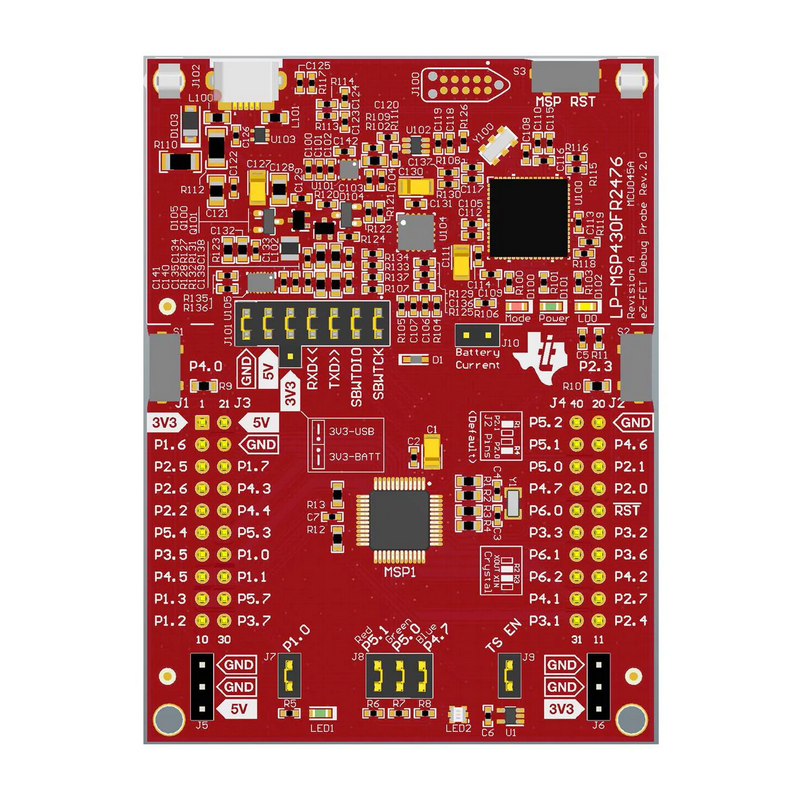





1SLAU802 – March 2019
Submit Documentation Feedback Copyright © 2019, Texas Instruments Incorporated
MSP430FR2476 LaunchPad™ Development Kit (LP
‑MSP430FR2476)
User's Guide
SLAU802 – March 2019
MSP430FR2476 LaunchPad™ Development Kit
(LP
‑‑MSP430FR2476)
The MSP430FR2476 LaunchPad™ development kit is an easy-to-use evaluation module (EVM) for the
MSP430FR2476 microcontroller (MCU). The kit contains everything needed to start developing on the
ultra-low-power MSP430FRx FRAM microcontroller platform, including onboard debug probe for
programming, debugging, and energy measurements. The board also features onboard buttons and LEDs
for quick integration of a simple user interface, an onboard temperature sensor, and a CR2032 coin cell
battery holder.
MSP430FR2476 MCU
The MSP430FR2476 is an ultra-low-power MSP430FRx FRAM-based microcontroller (MCU), which offer
extended data logging and security capabilities. The MSP430FR2476 offers the small LQFP package
(7 mm × 7 mm) in the FRAM microcontroller portfolio, combined with a variety of integrated peripherals
and ultra-low power consumption. FRAM is a cutting edge memory technology, combining the best
features of flash and RAM into one nonvolatile memory. For more information on FRAM, visit
www.ti.com/fram.
Device features include:
• 1.8-V to 3.6-V operation
• 16-bit RISC architecture up to 16-MHz system clock and 8-MHz FRAM access
• 64KB of program FRAM, 512 bytes of information FRAM, and 8KB of RAM
• 12-channel 12-bit ADC
• One enhanced comparator with integrated 6-bit DAC as reference voltage
• Four 16-bit timers with three capture/compare registers (Timer_B3)
• One 16-bit timer with seven capture/compare registers (Timer_B7)
• One 16-bit counter-only RTC
• 16-bit cyclic redundancy check (CRC)
• 43 GPIOs

1SLAU802 – March 2019
Submit Documentation Feedback Copyright © 2019, Texas Instruments Incorporated
MSP430FR2476 LaunchPad™ Development Kit (LP
‑MSP430FR2476)
User's Guide
SLAU802 – March 2019
MSP430FR2476 LaunchPad™ Development Kit
(LP
‑‑MSP430FR2476)
The MSP430FR2476 LaunchPad™ development kit is an easy-to-use evaluation module (EVM) for the
MSP430FR2476 microcontroller (MCU). The kit contains everything needed to start developing on the
ultra-low-power MSP430FRx FRAM microcontroller platform, including onboard debug probe for
programming, debugging, and energy measurements. The board also features onboard buttons and LEDs
for quick integration of a simple user interface, an onboard temperature sensor, and a CR2032 coin cell
battery holder.
check_circle
check_circle